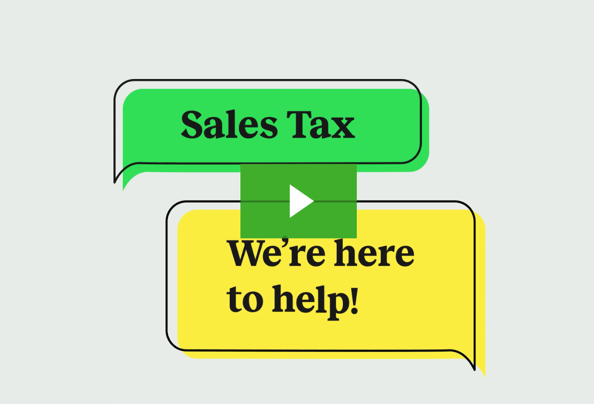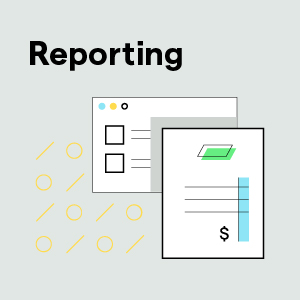The Illinois Marketplace Facilitator Sales Tax Law, Explained
by March 6, 2020
Good news for marketplace sellers — the state of Illinois now requires marketplaces to collect sales tax on behalf of sellers on online marketplaces like Amazon and Walmart.
This means that if you sell on a platform like Amazon then Amazon will collect sales tax from your Illinois buyers on your behalf, and remit it to the state.
But as usual, there are always a few wrinkles here when it comes to eCommerce sales tax.
This post will explain what online sellers need to know about the Illinois marketplace facilitator law and answer your frequently asked questions.
Overview of the Illinois Marketplace Facilitator Law
Illinois’ marketplace facilitator law states that marketplace facilitators who generate $100,000 or more in sales, or generate sales in 200 or more separate transactions, must collect sales tax on behalf of third-party sellers on sales made through that marketplace.
At the end of each quarter (March, June, September and December), the marketplace must determine if either of the thresholds was met during the preceding 12-months in order to collect and remit sales tax.
Quick Facts about the Illinois Marketplace Facilitator Law
-
- Effective date: January 1, 2020
- Threshold: Marketplaces who generate $100,000 or more in sales in Illinois or generate sales in 200 or more transactions must collect sales tax on behalf of buyers who sell on that marketplace.
- State law information: Read the full text of the Illinois Marketplace Facilitator Law
- Marketplaces that have adopted this law:
Update as of January 1, 2021:
Illinois provides additional information for “marketplace facilitators” on sales excluded from the retailers’ occupation tax remittance threshold determination. The information is effective January 1, 2021.
Sales Excluded From Tax Remittance Threshold Determination
As part of the tax remittance threshold determination, marketplace facilitators must exclude the following types of sales:
-
sales for resale; and
-
sales of tangible personal property that is required to be registered with an agency of Illinois, including motor vehicles, watercraft, aircraft, and trailers.
All sales other than these, even if they are exempt from tax, must be included in calculating the tax remittance thresholds.
A marketplace facilitator is considered to be habitually engaged in the selling of tangible personal property and as such, no sales made by a marketplace facilitator are considered to be occasional sales (unlike a remote retailer). Therefore, marketplace facilitators do not have occasional sales to exclude from their tax remittance threshold determination.
Frequently asked Questions about Marketplace Facilitator Laws
What exactly is a marketplace facilitator in Illinois?
Illinois law defines marketplace facilitators as a “(i) listing or otherwise making available listing or otherwise making available for sale the tangible personal property of the marketplace seller through a marketplace owned or operated by the marketplace facilitator; and (ii) processing sales or payments for marketplace sellers.”
Online sales platforms like Amazon and eBay are considered marketplace facilitators under Illinois law.
A software like Shopify or Magento that allows online sellers to build and manage their own stores would not be considered a marketplace facilitator.
Does this mean I can stop collecting Illinois sales tax?
It depends. Every business’s sales tax situation is unique to that business.
Let’s look at a couple of common scenarios for businesses who have sales tax nexus in Illinois.
Example #1: You only make sales on online marketplaces.
In this example, you only sell on Amazon and eBay. Because Amazon and eBay are both now collecting sales tax from buyers on your behalf, you are not required to collect sales tax from your buyers. (However, you may still be required to file periodic sales tax returns. See “Does this mean I can cancel my Illinois sales tax permit?” below.)
Example #2: You sell on online marketplaces and your own online store and/or brick and mortar store.
In this case, you’d still be required to collect sales tax from buyers who purchase from you through your own online store (for example, via your BigCommerce or Shopify store). And you would still be required to collect sales tax from your brick and mortar customers.
Marketplace facilitator laws only cover marketplaces. The state still requires that merchants collect sales tax from buyers via sales channels where the marketplace facilitator laws do not apply.
Does this mean I can cancel my Illinois sales tax permit?
It depends.
Illinois’ marketplace facilitator law does not affect the sales tax registration requirements for existing sellers. So if you live or otherwise have sales tax nexus in Illinois (including Illinois economic nexus), then you are still required to hold an Illinois sales tax permit. This also means you are still required to file sales tax returns on due dates set for you by the state.
However, if you are registered to collect sales tax in Illinois and only make marketplace sales in Illinois, you may be able to cancel your sales tax permit.
But first, a word of caution. We recommend checking directly with the state or a sales tax expert before cancelling your sales tax registration. This is because your business is now on the state of Illinois’ books and potentially on their radar should they decide that you still have sales tax obligations in the state of Illinois.
Final note: It’s important to assess your business before making a decision about cancelling sales tax permits. Are you in a growth stage? Do you plan to expand and think you may have Illinois sales tax collection requirements in the future? Then you may want to hang on to your Illinois sales tax permit rather than cancelling it and going through the administrative hassle of registering again in the future. This business decision is up to you.
Do I still need to file an Illinois sales tax return?
If you are registered to collect sales tax in Illinois (i.e. you have an active Illinois sales tax permit) then the state still requires that you file sales tax returns.
If you only make sales via marketplaces, and all of your marketplaces collect sales tax from buyers on your behalf, then you may only be required to file a “zero return.” (This is a return showing that you do not have any sales tax to remit to the state.)
If you no longer have any sales tax to remit to the state of Illinois, we recommend checking directly with the state to determine if you can cancel your sales tax registration.
Be cautious here. If you are registered for a sales tax permit and do not file, the state can assess penalties even though you don’t have any sales tax to remit! We have, unfortunately, talked to too many sellers who have found this out the hard way when a tax penalty bill arrives.
What do I do with any Illinois sales tax I have already collected?
If you have already collected Illinois sales tax from buyers, it is vital that you remit that amount to the state. The only way to get in serious criminal trouble in sales tax is to collect sales tax from buyers on the state’s behalf but keep it in your own pocket.
Example:
Let’s say you sell on Amazon and Illinois requires you to file and remit sales tax quarterly. Though Amazon began collecting sales tax on your behalf on January 1, if you have any sales tax in your bank account that you collected from Q4 2019, you will still need to remit that to Illinois Department of Revenue or face a penalty.
Important to note: Illinois and Amazon have thrown a further wrench into the works with their Retailer’s Occupation Tax (ROT), which you can read more about how to handle correctly here.
Does TaxJar handle this for me?
Yes.
TaxJar AutoFile Handles Illinois Sales Tax Automatically
TaxJar AutoFile automatically compiles your sales tax data the way the state of Illinois wants it filed. For example, many states, Illinois included, want sellers to break down their sales tax collected interstate (sales originating in Illinois sent to another state) and intrastate (sales made from Illinois to Illinois.)
If a marketplace has collected sales tax on your behalf, TaxJar reports that directly to the state so that the state is aware you have met your sales tax obligations.
If you currently AutoFile your Illinois sales tax returns, you don’t need to do a thing. It’s handled!
Important to note: Amazon and Illinois are not currently seeing eye to eye on the Illinois Retailers’ Occupation Tax (ROT). Read more about how we are handling that here.
TaxJar Reports Give You all the Info You need to File Manually
If you prefer to file manually, your TaxJar Reports also reflect what the Illinois Department of Revenue wants to see on your tax return.
For example, Illinois currently requires that some Illinois sellers pay a Retailers’ Occupation Tax (ROT) on all marketplace sales. Your TaxJar Illinois report breaks down your Illinois sales just the way the state wants to see them, so you can file manually with zero extra hassle.
Also don’t worry that you will double pay. TaxJar accounts for sales tax collected on your behalf, and only shows you the amount you owe to the state out of your pocket.
Further reading on Illinois sales tax and marketplace facilitator laws:
- TaxJar’s Marketplace Facilitator FAQ
- State by State: Marketplace Facilitator Laws Explained
- Illinois Sales Tax Guide for Businesses
Don’t have time to keep up with changing state legislation? TaxJar tracks it for you and can file your state sales tax returns automatically with AutoFile, so you can set it and forget it.







